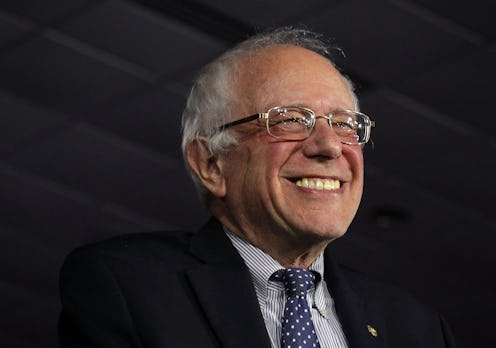News
In Iowa, The Losers Were The Winners
The Iowa caucuses are over! Well, sort of. Ted Cruz is the clear victor in the Republican race, while the Democratic side has Hillary Clinton with a razor-thin lead over Bernie Sanders, which speaks volumes to how the race has dramatically changed in one night. One thing is clear: At the 2016 Iowa caucuses, the losers were winners — and some of the winners might turn out to be losers.
There are always two races going on in the Iowa caucuses, and I’m not talking about the Democratic and Republican contests. Sure, there’s the matter of who received the most votes, and thus the most delegates. But there’s also the wholly separate question of how each candidate performed in the state relative to what was expected of them. That’s a more complicated and multi-faceted question, and the answer to it is often at odds with the official vote count.
Take Marco Rubio. He had been languishing in third place in Iowa for months, and third place is indeed where he finished on Monday. But nobody could have predicted that his share of the vote would have been nearly as high as it was. Rubio ended the night with 23 percent, just one percent behind Donald Trump. Considering Rubio had been polling about 12 points below Trump when caucus day arrived, his surge from behind in Iowa suggests that the polls may be seriously underestimating his support, which gives him reason to be very happy heading into New Hampshire.
Trump came in second place. And let’s be honest — given the brand upon which he’s built his candidacy, anything other than first place is humiliating. But in the weeks before the caucuses, many reports suggested that Trump’s ground game was severely lacking, and there was widespread speculation that his reliance on first-time voters would prove disastrous. (In the name of transparency, I was among the doubters.)
The Donald proved these reports wrong. He didn’t come in first, but he still got more votes than any other Republican in Iowa caucus history, other than Ted Cruz. That’s a huge accomplishment. It’s now undeniable that Trump can indeed get his supporters to the polls, and the fact that he placed second in Iowa firmly puts to rest the question of whether he actually has a legitimate shot at winning the Republican nomination.
The Democratic race is honestly too close to call. Clinton was a fraction of a percentage point ahead of Sanders, and her campaign has declared itself victorious. Clinton's Iowa victory, however, is in name only. For one, because the tallies are as close as they are, she and Sanders will receive almost the same number of delegates from the state regardless of who “won.”
Moreover, a lot of Democrats expected Clinton to win the state easily. That’s now out of the question, and as a result, CNN is already calling it “a tough night” that “looked like a defeat” for her. That’s not a great narrative for her, even if she does technically get more delegates out of Iowa.
Which brings us to Bernie Sanders. He may not be crowned the “winner” in Iowa, but make no mistake: This was an enormous night for him. At the risk of being hyperbolic, his showing was a historic night in American presidential politics. Sanders’ is really liberal, and his brand of leftism is way, way outside what’s considered mainstream in American politics. But the fact that he fought Clinton to a draw brings up a very real, very significant possibility. Maybe his ideology isn’t so far outside of the mainstream as everybody once believed.
It’s impossible to say what the ramifications of this will be. But Sanders the democratic socialist has proved beyond a shadow of a doubt that, whatever comes of his candidacy, his followers are not a fringe minority, and they’re not going anywhere anytime soon. Regardless of whether he wins their nomination, the impact he’s had on the Democratic Party will be felt for many years to come.
